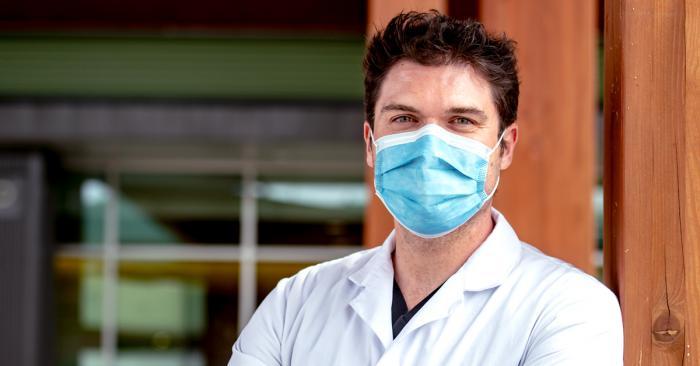
“There’s two major components to what I do. One is getting accurate results to help diagnose patients. Another aspect is patient contact. I’m often the first person to talk to a patient after they’ve gone through the triage in Emerg.
I hear a lot of people’s stories. I’m not the doctor, but I’ve got my job to do. I’m a pretty jovial person. I try to lighten the mood by talking to patients and reassuring them, and trying to manage whatever situation they’re going through. Interacting with patients is an important part of my job.
As a Medical Lab Assistant, I have two different styles of days. I can either be taking blood in our outpatient area, where just anybody from off the street comes in and gets their blood drawn. I take their requisition, enter it into our computer, which would spit out some labels for blood tubes to draw, then I bring them into a room, talk to them a bit, take a blood sample, and then patch them up and send them on their way. I repeat that process about 40 or 50 times a shift.
Or I could be working in our inpatient area, where I get messages from around the wards in the hospital. They would tell me where I need to go and what blood I need to draw from what patient.
I’ve been there nine years. Working a lot of outpatient shifts were getting a little monotonous for me. But when COVID came in, I volunteered to be available for whatever shift they needed me to work. I definitely felt that calling to help people. It totally kicked in: ‘Oh right, I’m in this job to help people.’
My wife is a first-responder as a 911 dispatcher. Our kids are five, three and one. My wife has gone back to work, so now I’m taking a six-month paternity leave.
We’ve just had a couple months of teaching the kids, ‘No, no, don’t go near that person.’ So, I’m wondering what those lasting effects will be of teaching them to stay away from people. We’ll see if they become little introverts or not.”
Phillip, Medical Lab Assistant, part of the health care team